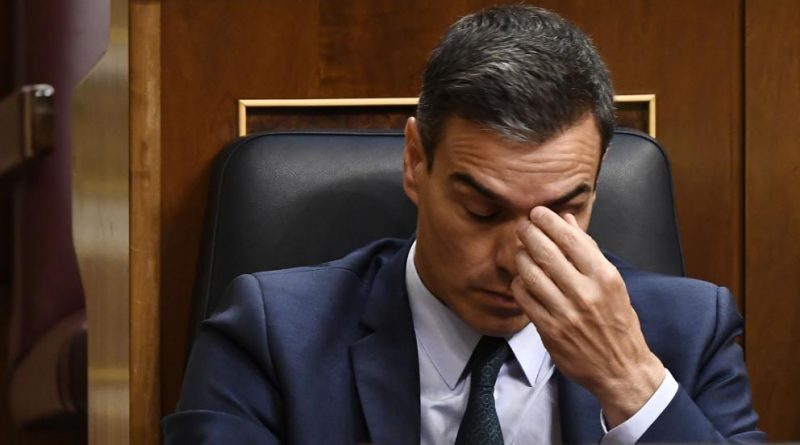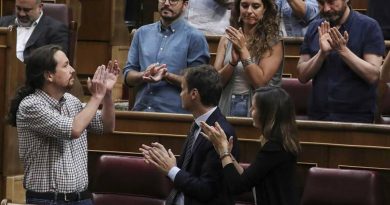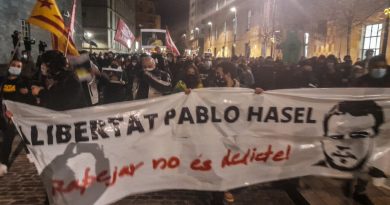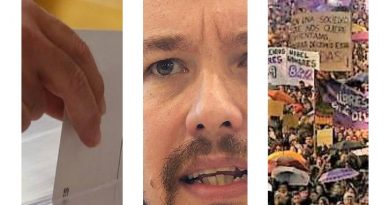Spain without a compass
The failure of the investiture of Pedro Sánchez, raises the question: Will there be any agreements or new elections? No way out. In June 2018 a motion of censure against Mariano Rajoy ended his mandate and allowed Pedro Sanchez became president. In February 2019 Congress lay the budgets submitted by La Moncloa and forced early elections. He 28 April presidential elections were held in which Sanchez won the most votes and, later, King Philip VI asked him to form government.
The first investiture vote that required absolute majority was set for 23 August and ended: 124 in favor, 170 against and 52 abstentions. The result led to a second vote 25 of August, which it required a simple majority and ended: 124 in favor, 155 against and 67 abstentions. Sanchez failed confidence deputies. The king, which should convene a new round of consultations, He announced that before doing so will give them more time to the parties to provide them the opportunity to baste agreements. He 23 September is the deadline: no new government or automatically call new elections 10 of November, a variant with little social support.
The failure of the investiture prolonged government inaction, increases uncertainty, deepens the crisis of '78 regime and increases the discrediting of the political system. How was arrive to this situation? The PSOE practically set aside the independence forces that had earned him the censure motion and centrally devoted himself to try to agree with United We Can.
The failure of the investiture prolonged government inaction, increases uncertainty, deepens the crisis of '78 regime and increases the discrediting of the political system.
It was a negotiation with twists and turns in which Pablo Iglesias gave in many central themes and ended in a fiasco, as They quarreled over the division of powers and charges. The “institutional left” again demonstrated its inability to join, while often directly or indirectly you agreed right. If it had been the “Trifacho” which it had the possibility of forming government, They would have agreed “up bonuses”.
In the second session of investiture Sánchez and Churches They were blamed each other for the failure and the "Icing on the cake" put the podemita leader when last minute proposed from the lectern renounce the Ministry of Labor in exchange for “skills in active employment policies”. UN policy can drift it becomes increasingly evident, like differences with IU, Anticapitalist and other partners.
None of the parties in the Chamber “kicked board” with breaking positions and with the regime called mobilization by a bottom outlet for the country. Right was known, but separatists and "progress" They also acted as advisers more or less critical of Sanchez, from a location "responsibility" with government and, definitely, the monarchy, both advocates 155.
He "Trio de Colón" He voted against and took the opportunity to propagandize their positions. Pablo Casado (PP) He described the government as "A threat to Spain". Albert Rivera (citizens) accused the tandem Sanchez-Iglesias paralyze Spain for ministry. The facho Santiago Abascal (VOX) Sanchez said as a puppet of the separatists.
ERC and EH-Bildu, they changed their vote NO to the abstention as a sign in favor of the investiture of Sánchez. Gabriel Rufián (ERC) bitterly he regretted the lack of agreement and told Pedro Sánchez who preferred to facilitate his inauguration this time because his party would have difficulty doing so with an unfavorable ruling for the Catalan political prisoners. The autonomist course and Dialogue with the oppressive state taken by Left handed again he expressed so clearly that Ruffian admitted as: "I got many messages of congratulations from members of the PSOE and people from other parties very contrary to ours". The PNV abstained, his spokesman Aitor Esteban complained about the lack of dialogue and gave advice to route bulk negotiations. JxCat voted against.
Following the wake of the endowment, Vice President Carmen Calvo gave outdated proposals for a coalition government with positions for and announced that United can only negotiate support in Parliament with the convergence of objectives, “Portuguese via”. further, He said: "Touch explore other situations to avoid elections" "With the PP we can unite broad outlines of state policy", in a nod to the possible attempt to rebuild the battered bipartisanship.
None of the parties in the Chamber “kicked board”
The PSOE rose from the ashes in the last elections, even so, the strong and stable government demanded by the imperialist bloc of the European Union is in the nebula. Entrepreneurs have panic that a power vacuum affect their businesses and the course of the economy, Acting officials envision a quagmire if the judgment of the trial of political prisoners and the upcoming National Day are given without a president invested. Many are ruined holidays in August.
Two failed investitures accentuate the crisis of the regime of '78, whose monarchist-parliamentary scaffolding can not provide progressive responses to social needs and policies of the majority. The crisis is important, but the above have leeway for two reasons: They have the cooperation of politicians and union leaders who do not call mobilizing and installing the belief that the only course of action is governed by the maximum "Choose the lesser evil".
The actions can PSOE-United and political weight "Trio de Colón" induces reflect on the rise-fall cycle of the reformers and their relationship with the rise of the right. Often broad sectors of society decide to change and deposit expectations in critical expressions, supposedly "left", as with SYRIZA in Greece and the PT in Brazil, just to take two examples. When these forces fit, They do not meet promised not produce significant changes, defrauding the hopes and seeded, which at the time it was support, It becomes rejection and fertilizer reactionary. PSOE social democracy and the center left United can pass through this route since reformist, even with nuances and differences, They propose only partial changes that remain within the framework of the regime and system.
For these reasons, we must build something new, a leftist alternative, anticapitalist, I call mobilizing and organizing the workers and the people, of the students, the feminist movement and immigrants, that will not give the government, the regime and the system. The problems in Spain are deep, tanto los actuales como los de arrastre, anchored in the Francoism. They will not solve choosing only president in an exhausted regime that is necessary to defeat, rather than to patch.
There is another urgent and necessary output: that popular majorities win the streets for the convening of a Constituent Assembly, Free and sovereign to discuss democratically decide their own economic destiny, political and social. To define whether to prioritize social needs on negotiated bank-business, self-determination on the impositions, freedom of jail political prisoners, democracy over authoritarianism, human rights on trimming democratic freedoms and lives of the majority of the capitalist profits for a handful of privileged. Everything in the strategic path of a workers' government and the people and free federation of Iberian Socialist Republics.




